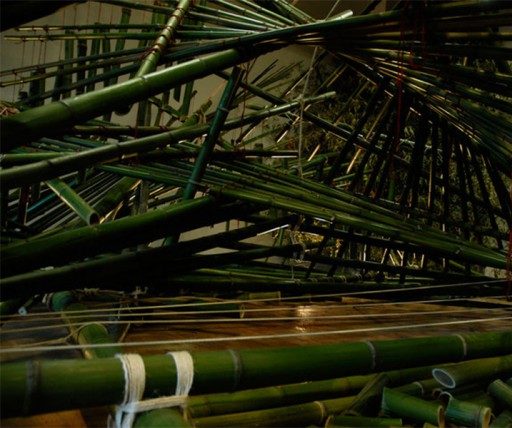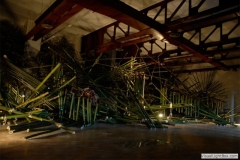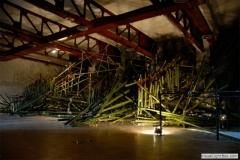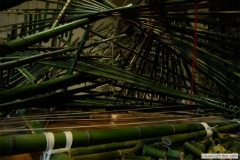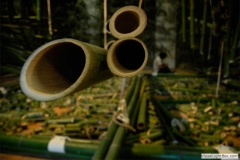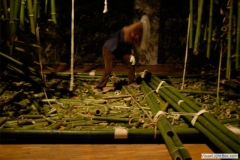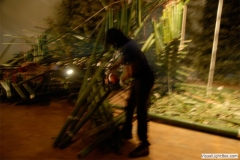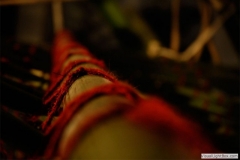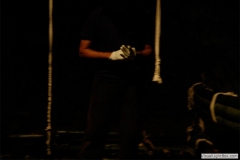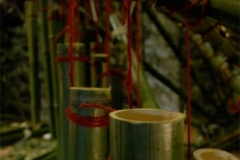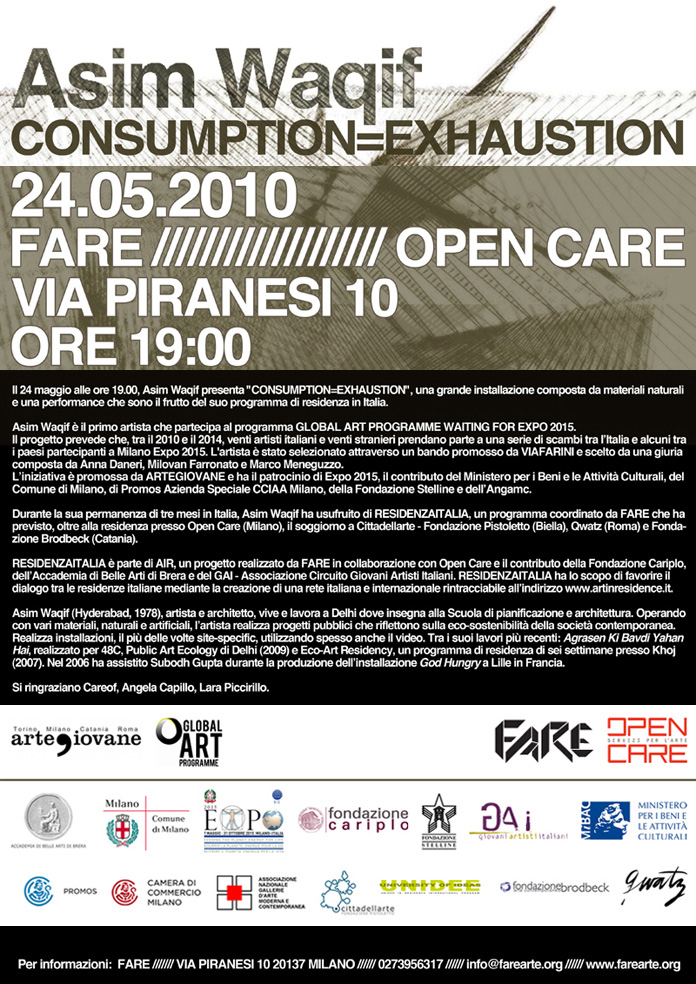
Asim Waqif is the first artist of GLOBAL ART PROGRAMME WAITING FOR EXPO 2015. The project provides that, between 2010 and 2014 , twenty Italian artists and twenty foreigners will take part in a series of exchanges between Italy and some of the countries participating in Milan Expo 2015. The artist was selected through a tender promoted by VIAFARINI and chosen by a jury of Anna Daneri , Milovan Farronato and Marco Meneguzzo.
The initiative is sponsored by Artegiovane and has the support of Expo 2015, the contribution of the Ministry of Heritage and Culture, Comune di Milano, Promos Special Agency Milan Chamber of Commerce , the Foundation Stelline and dell’Angamc . Coordinated by FARE , which provided , in addition to the residence at Open Care (Milan ), the stay at Cittadellarte – Fondazione Pistoletto (Biella ) , qwatz (Rome ) and Fondazione Brodbeck ( Catania ) .
“CONSUMPTION=EXHAUSTION” is the final project for a 3-month residency in Milan, Italy. Organised by Artegiovane Torino in collaboration with OpenCare and FARE.
Site-specific installation and performance; Medium: Bamboo and Rope; Milan.
Consumption = Exhaustion
Our society/economy today is based on principles of consumption so much so that citizens are often referred to as consumers. In fact the word ‘consume’ means to use up or finish. This is a drastic shift from earlier craft-based societies where ideas of thrift and sustainability were inherent. Today when high-science is looking at sustainability and conservation of resources as the only hope for long-term survival of our race, I feel, it has become imperative that we look back at our ancestral knowledge-base to see how they achieved a balance between needs and available resources, rather than relying on new-technology for solutions. The problem with industrial technology is that although it may provide effective short-term solutions to problems, yet in the long term it almost always generates some other new problem that we recognise only many years later. And then we try to develop newer technologies to solve these problems which in turn create more complicated problems for the future, ad infinitum.
In craft-based societies new technology is developed through trial and error over many generations of users, and so any new development is based not only on the experience of current practitioners but it draws from the experience of the past. The creator and the user almost always know each other and live in close proximity so there is constant feedback. They are automatically concerned about the overall good of any practice because they understand that it will affect them too.
Society today works in a completely different way. We think of the new as better practice and this is particularly embodied in the market economy. We are under constant pressure, through the all-pervasive media, to consume newer and newer products so much so that even the old has become a new commodity. For example the fashion of faded jeans, which is a result of overuse, is now available as fresh pre-faded jeans in the market and they are more expensive than normal jeans. At the same time almost everything has been converted into a buyable commodity, be it water (earlier a natural community resource) or learning (an inherent part of growing-up)
This cycle of consumption is heavily favourable to industry and industry has tried hard in the last few decades to create products that will last only for a limited time because otherwise nobody would want to buy any more. Industry has seeped into politics to such an extent that governments that profess to work for the people are today mostly working for the interests of industry. This collaboration between industry, politics and media has created a unity in terms of innovation and evolution. Ideas outside this box are almost impossible to implement.
One of the most influential institutions of this unity is the method of education. We send our children to schools to learn theoretical and abstract concepts and very little is taught about their immediate surroundings/context. Kids today all over the world are learning more and more similar things and this has created a society of semi-clones. Whether you study in Sicily or Milan you will have to read through the same text-books. Education is supposed to open up the world of choice and provide equal opportunities for all while I feel it does exactly the opposite. You can choose professions only from a limited group within the industrial-market complex, and opportunities are extremely limited for students who cannot perform well in the school evaluation. In effect it has created a solitary basis of judging someone’s ability: school examination. If you are good at something else it does not matter.
Many of these issues are easy to spot in Italy for an outsider. There is no doubt that politics, media and industry is mixed up and they are all aiding each other. For them profit is the only criteria and as long as people can be made to believe that they have choice and that they can control their lives, it does not matter if they actually have any choices. Education, I have come to realise, is a huge problem in Italy. Right now Italy has whole generations of kids who have compulsory school and then go to university only to find no work. Fresh graduates have to work for free in the beginning. By the time a young person has started earning enough he/she is already old! At the same time craft is almost dead, or it has become a fashionable hobby.
There is nothing new in what I am saying here, I am only trying to show the context which has influenced my actions. I am not trying to persuade you to live differently. Nor is my project about the evils of modern society. Instead, in this project I am looking at the humanistic aspects of craft practice; its meditative quality, the attachment between the work and the worker, the process of slow evolution and the physical act of manual labour. All this will culminate in the spectacle of the vernissage where industrialisation will finally seep into the artwork.


